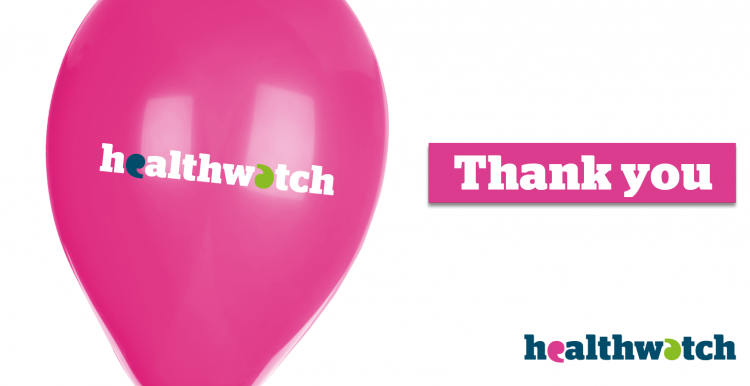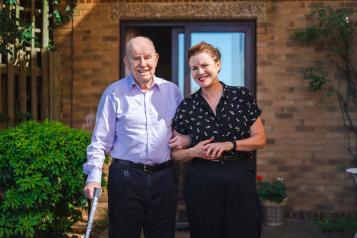Thank you: More than 340 people tell Healthwatch what they think would make the NHS better

We want to say a huge thank you to everyone who has shared their feedback with us about the local implementation of the NHS Long Term Plan.
We’ve been speaking to people throughout Wiltshire about how they would like to see the changes set out in the NHS Long Term Plan implemented. The plan sets out a number of ways in which NHS care needs to improve, so local communities took the opportunity to have their say about what those changes should look like – both in person and via an online survey.
We’ve been to markets, libraries, leisure centres and community groups and we will now share this feedback with local services to inform how the Long Term Plan is implemented in Wiltshire.
What did people say?
We asked people to share their views about how the NHS can better support their overall health, and how it can improve care for specific conditions too.
People spoke to us about how the NHS can give them more control of their care, help them to stay healthy, and provide better support. They also shared their views about how the NHS can better support people affected by mental health, learning disabilities and autism, and about how GP surgeries can group together to work more closely with other organisations, such as pharmacies and community services, in Primary Care Networks (PCNs).
Here are some examples of the feedback people shared with us.
Zoe, from Calne, said: “I have had personal links with people living with mental health issues, so I have a keen interest and experience of local health services. I think that mental health services in Wiltshire should be more publicly advertised as to where you can go if you are struggling with mental health issues as well as waiting times.”
June, from Trowbridge, said: “People with learning disabilities and autism need to be valued and respected as major contributors towards all meaningful improvements within all aspects of NHS care.
“Across the whole spectrum of autism – as indeed with learning disabilities – key staff need training in how to support people appropriately and recognise issues such as sensory overload. This can really help if someone is feeling overwhelmed."
Heather, from Warminster, said: "One of the issues for me as a diabetic is locality. It is really helpful when we are able to get consultant appointments locally rather than travelling to the main city hospitals. More local appointments for long term health sufferers would be great."
A full report is due out this summer.
Primary Care Network Focus Group
What we did
We were invited by Wiltshire Clinical Commissioning Group (CCG) to undertake a focus group and gather the views of the patient participation groups (PPGs) in the Wiltshire area on the introduction of Primary Care Networks (PCNs). The PPGs are made up of a group of volunteer patients, the practice manager and one or more of the GPs from the relevant surgeries.
33 people took part in the focus group and all areas of the county were represented.
An information session was hosted by the CCG regarding PCNs and the attendees were given an opportunity to ask questions which were answered during the discussion.
What people said
Overall, those taking part in the discussions saw PCNs as a positive thing and a great concept.
The opportunities and benefits of working together included reduced waiting times, appointments handled by more appropriate health professionals resulting in freeing up GP time. This would allow for “the most appropriate intervention at the right time” and “more opportunities for individual care.”
Other benefits included “better connections between primary and social care with less waiting times, less paperwork and fewer people falling between the cracks.” Money for new posts was seen as a huge benefit and the ability to “share” staff between surgeries, including back office functions was also considered a positive thing.
Potential barriers or difficulties included transport issues in rural areas, managing the expectations of patients and sharing medical records.
For those patients who opt out of data sharing this was seen as a huge issue which would need to be resolved quickly by reassuring people about the security of their data and making them aware of the dangers of opting out.
Other issues such as the physical accommodation of staff and additional IT equipment was another potential problem, as was the timescale of July 2019 with many asking if this was enough time to roll out PCNs.
Another difficulty that could arise was the question of how CQC inspections would work and problems with communication/working between practices and other agencies.
There was also a call to get the message out to patients about the changes.

